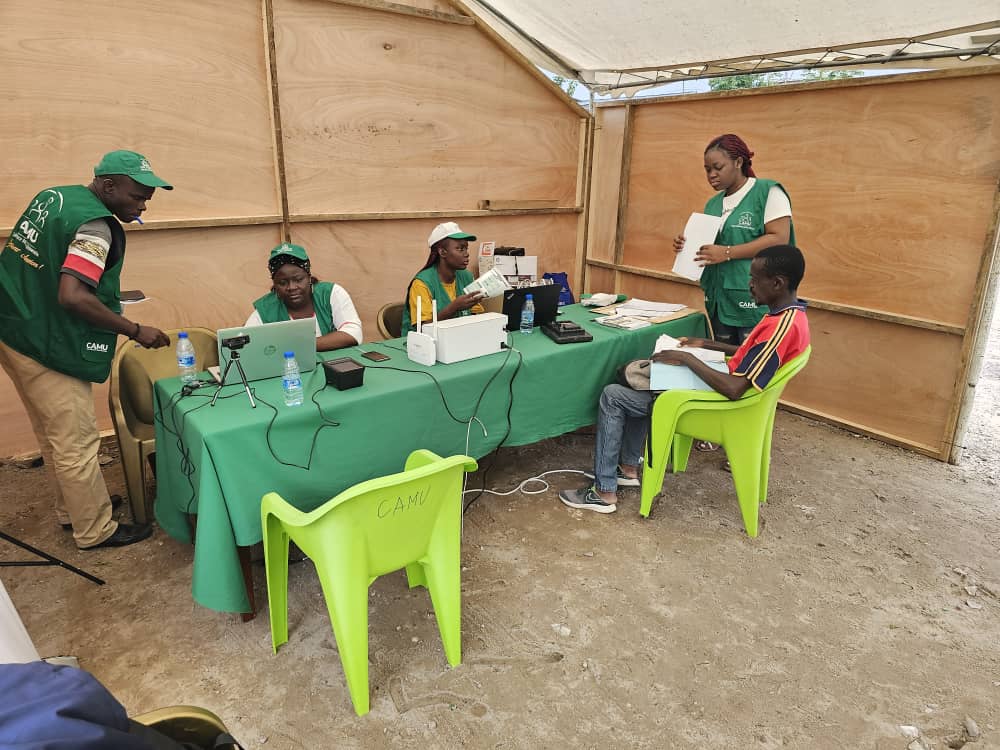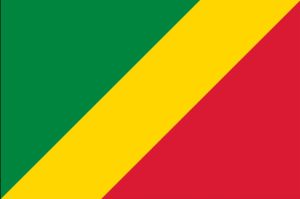OUR SOLUTION Biometric ID Issuance Tailored to Your Needs
Discover our Biometric Platform for ID Issuance
Learn more



In many African countries, secure and equitable access to healthcare remains a major structural challenge. In the Republic of Congo, a universal health insurance scheme required more than just a policy. It demanded a system that could identify each person quickly, reliably, and only once. To deliver services effectively and prevent fraud, the government needed a trusted way to verify identities across both healthcare and social protection.
Congo already had a national identification system, but it wasn’t built for the health sector. Its limited interoperability and slow rollout pushed the Universal Health Insurance Fund (CAMU) to have its own database to meet its objectives. The priority was clear: verify identities in real time at the point of care, prevent fraud, eliminate duplicate records, and ensure that only eligible individuals received services. CAMU needed to verify identities directly at the point of care. The National Social Security Fund (CNSS), responsible for social security services, faced a similar challenge. Both institutions serve overlapping populations and initially considered building separate systems. They required a solution with a biometric ABIS, designed to meet their unique needs while maintaining data control and operational independence.
and fraudulent claims
with a biometric system
Congo implemented a multi‑tenant ABIS developed by Innovatrics, with Akieni as system integrator. The system supports fingerprint and facial recognition. The aim is to share this resource between CAMU and CNSS. Each agency shall then operate as a separate tenant, with a unified enrollment and verification interface. While CAMU runs on a private cloud, CNSS instead operates from on‑premise servers.
The deployment at CAMU began with pensioners and private‑sector workers, and continues to expand across other groups. The enrollment is based on document validation and biometric capture with centralized duplicate checks, without relying on the national ID database. Each enrollee receives a unique identifier, with their fingerprint used for online verification at healthcare facilities.
at service points using fingerprint match
for multiple agency tenants
Congo has a shared multi-institutions ready system. The system features a unique centralized biometric database, giving each participating agency separate access while sharing a common interface for enrollment and verification. Tens of thousands of individuals have already been enrolled, with a target of 3.5 million for CAMU. The centralized biometric checks help reduce fraud and eliminate duplicate records.
Using a unified platform, CAMU and CNSS can optimize IT costs and avoid building separate systems. The project also introduced a more open approach to digital governance in social protection, with both institutions managing their data independently while benefiting from a common infrastructure. Biometric cards with embedded fingerprints, planned for 2025, will enable offline verification and further extend access in remote areas.
speed up access to services
thanks to a shared ABIS
extends reach
The ABIS is built for frontline operations. At healthcare service points, staff scan a citizen’s fingerprint and confirm their identity in seconds. The system blocks duplicate entries at enrollment and ensures that each person receives only the services they qualify for.
Innovatrics’ biometric platform goes beyond ABIS. It includes modular components that make it possible to build a complex solution with customized enrollment. The system was built to scale, not just in user numbers but in features.
In Congo, this setup offers a strong opportunity for CAMU and CNSS to collaborate without compromising privacy or governance. They share infrastructure but operate independently — resulting in lower costs, faster onboarding, and a path to expand services to more partners in the future.
Discover our Biometric Platform for ID Issuance
Learn moreWe’ll contact you within 24 hours.